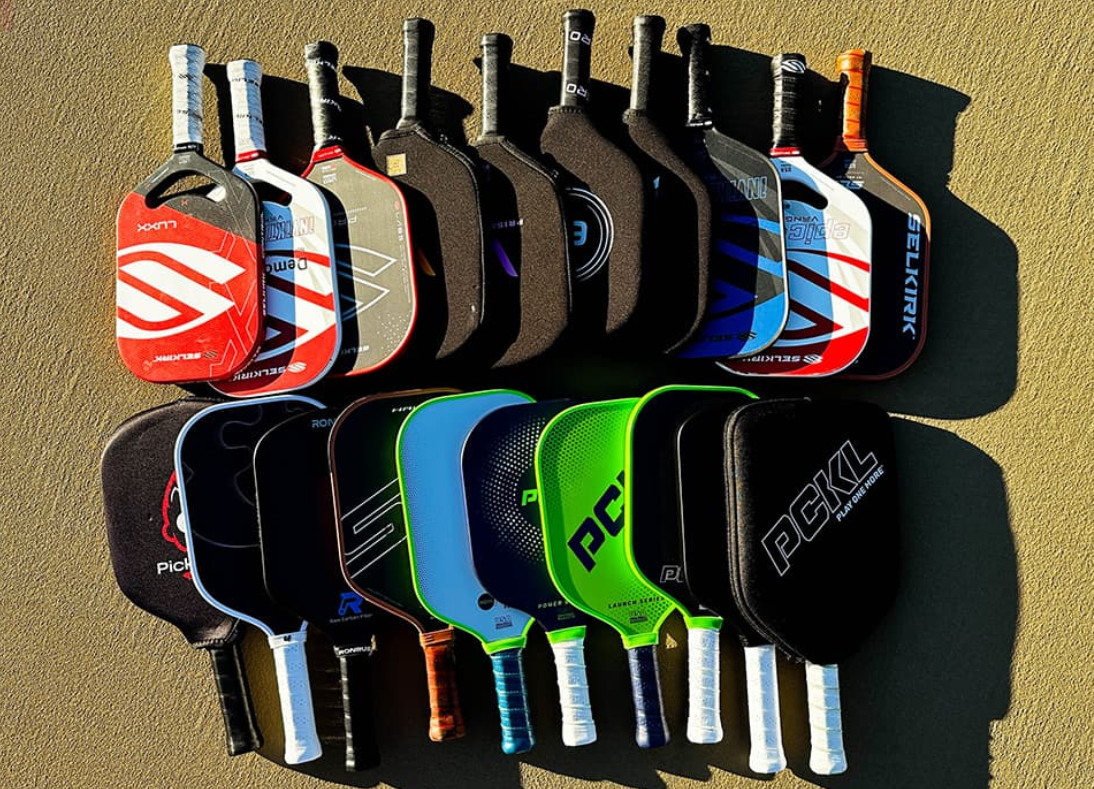Pickleball, the beloved sport combining elements of tennis, badminton, and ping pong, has been rapidly gaining popularity worldwide. Whether you're a seasoned player or just discovering the game, one of the most crucial decisions you'll face is choosing the right pickleball paddle. Among the various factors to consider, paddle weight stands out as a significant determinant of your gameplay experience. In this guide, we'll delve into the importance of pickleball paddle weight and how it can affect your performance on the court.
Understanding Pickleball Paddle Weight: Pickleball paddles come in a range of weights, typically falling between 6 to 14 ounces. The weight of your paddle can significantly impact your game, influencing your power, control, maneuverability, and even preventing fatigue during extended play sessions. Finding the ideal weight for your paddle involves considering your playing style, physical strength, and personal preferences.
Effects of Paddle Weight on Performance:
-
Power vs. Control: Heavier paddles generally offer more power due to their ability to generate momentum during swings. However, they may sacrifice some maneuverability and control, making finesse shots and precise placement more challenging. On the other hand, lighter paddles provide enhanced control and maneuverability, allowing for quicker reactions and precise shots, albeit with slightly less power.
-
Fatigue and Comfort: The weight of your paddle can affect your stamina and comfort on the court, especially during prolonged matches or intense rallies. A paddle that's too heavy may lead to arm fatigue and decrease your endurance over time. Conversely, an excessively light paddle might lack the necessary heft to absorb shock from ball impacts, potentially causing discomfort or strain on your wrist and arm muscles.
-
Playing Style: Your preferred playing style also influences the ideal paddle weight for you. Aggressive players who rely on powerful smashes and fast-paced shots may benefit from heavier paddles to maximize their hitting power. Meanwhile, defensive players or those who prioritize finesse and placement might prefer lighter paddles for improved maneuverability and control at the net.
Finding Your Perfect Paddle Weight:
-
Experimentation: The best way to determine your ideal paddle weight is through experimentation. Borrow paddles from friends or try demo paddles at your local pickleball club to test different weights and assess how they feel during gameplay.
-
Consideration of Factors: When selecting a paddle weight, consider factors such as your strength, playing style, level of experience, and any existing arm or wrist injuries. It's essential to strike a balance between power, control, and comfort to optimize your performance and enjoyment of the game.
-
Seek Expert Advice: Don't hesitate to seek advice from experienced players, coaches, or professionals at specialty sports stores. They can offer valuable insights and recommendations based on their expertise and knowledge of pickleball equipment.
In the dynamic world of pickleball, the weight of your paddle plays a crucial role in shaping your gameplay experience. By understanding how paddle weight influences power, control, comfort, and maneuverability, you can make informed decisions to enhance your performance on the court. Remember, there's no one-size-fits-all approach when it comes to paddle weight, so take the time to experiment, consider your preferences and playing style, and seek guidance when needed. With the right paddle weight in hand, you'll be well-equipped to enjoy countless exhilarating matches and elevate your pickleball prowess to new heights.

